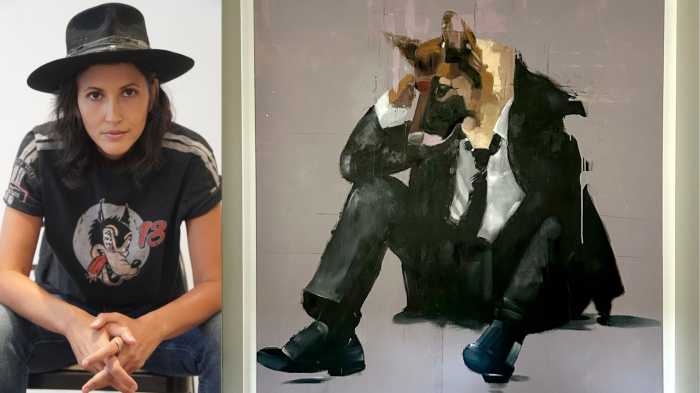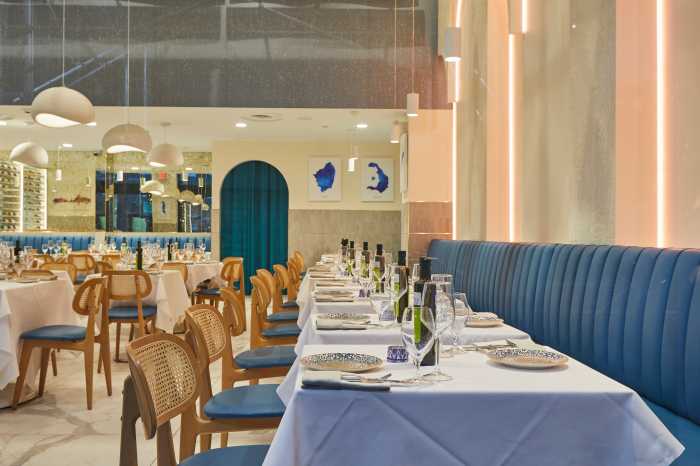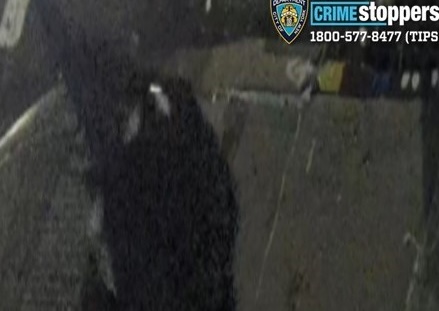By Lincoln Anderson
As a result of an advisory opinion by the city’s Conflict of Interests Board, Bob Rinaolo last week stepped down as chairperson of Community Board 2’s Business Committee. The committee reviews liquor license applications and renewals for bars, nightclubs and restaurants, giving its nonbinding recommendations to the State Liquor Authority.
Replacing Rinaolo as Business Committee chairperson is Maria Passanante Derr, an attorney and niece of late Village Assemblymember Bill Passanante. Rinaolo remains a member of the Business Committee, which he chaired for three years.
In its advisory opinion, the Conflicts of Interest Board stated: “the Board determines that owners of licensed liquor facilities, such as bars and restaurants, may not chair a community board committee that considers the licensing of such facilities. The Board further determines that a community board member who also has an interest in a licensed liquor facility may not vote on matters concerning his or her own licensed liquor facility, but may vote on matters concerning other licensed liquor facilities.”
The main problem as the conflicts board found it is that “since the chair of a committee can greatly influence its agenda, the chair could use his or her position for the private advantage of a firm in which the chair has an interest.”
C.I.B.’s advisory opinion is dated May 2003. It was prompted, the opinion states, after C.I.B. received a request from “a community board member with an ownership interest in a licensed liquor facility as to whether he may 1) chair the community board committee which makes liquor licensing recommendations and 2) whether he may vote on such recommendations.”
Rinaolo owns The Garage, a restaurant, bar and jazz club on Seventh Ave. S. at W. Fourth St., and co-owns Senor Swanky’s Mexican restaurant and bar at LaGuardia Pl. and Bleecker St. He is a former president of the Greenwich Village Chelsea Chamber of Commerce.
The advisory opinion was provided to The Villager on Dec. 16 by a member of Community Board 2, who requested anonymity.
In a conversation with The Villger on Dec. 17, Rinaolo said he disagreed with the advisory opinion, but that — in a vacation scheduled prior to learning of the opinion — he will spend much of the next three months in Florida, after which he plans to run for board chairperson, the election being in June. Rinaolo noted C.I.B. has not said anything is wrong with a liquor license holder being chairperson of a community board. Thus, he said, the conflict-of-interest issue was basically moot as far as he was concerned.
Rinaolo initially said Derr would run the committee in his absence, but he didn’t say she would be the committee’s chairperson. However, by the following Monday, the decision had been made that he would resign as Business Committee chairperson. Rinaolo said the slight delay was because the board needed to find someone to replace Derr as chairperson of the Sidewalks Committee, so she could assume Rinaolo’s position. Phil Mouquinho, who owns P.J. Charlton restaurant on Greenwich St. in Hudson Sq., has been appointed head of the Sidewalks Committee, which reviews sidewalk cafe permits.
Rinaolo noted Derr chaired the Business Committee’s meeting earlier this month. He asked her to do so, he said, because he had been experiencing a health problem and wasn’t sure if he could make it. He ended up attending the December committee meeting, but let Derr run it.
Jim Smith, after serving for two years, will step down as C.B. 2’s chairperson after June, respecting the board’s acknowledged two-year term limit. Rinaolo said he had expected he would have a race for chairperson against Brad Hoylman, who lost a pretty close contest to Smith two years ago.
However, while not ruling out a run for chairperson, Hoylman, last week, said he may sit this one out and possibly run at a future date, feeling he might have a better chance then.
Since Smith won the election Hoylman has lost at least three votes he had on the 50-person volunteer-member board — Honi Klein, who was not reappointed to the board, and Cynthia Smith and Carol Reichman, who both left the board. They have been replaced by appointees of Manhattan Borough President C. Virginia Fields, who is aligned with the board’s Smith-Rinaolo faction, which presumably would make it even harder for Hoylman to win. Fields — who has a track record of appointing business members to the boards — will be term-limited out of office at the end of next year.
“No, I haven’t decided yet,” Hoylman said last week. “I eventually would like to do it. I don’t know if this is the year to do it, or to wait another year…. If I’m determined, maybe I could pull it off…. The board will probably be changing over the next several years as we get a new borough president. I’m taking a wait-and-see approach.”
As for the conflicts board’s advisory opinion barring liquor license owners from chairing committees dealing with liquor licenses, Hoylman said, “I think the decision has to be taken very seriously.”
Told Hoylman probably won’t run, Rinaolo was surprised, saying he’d heard Holyman had “been out campaigning and calling people…. That’s great if there’s going to be no competition,” he said.
Hoylman denied he had been trying to round up support.
Rinaolo said he disagreed with the C.I.B. ruling because he doesn’t feel that, in fact, he did have the ability to “greatly influence” the Business Committee’s monthly meeting agendas when he chaired the committee.
“I don’t think it was fair and I think it should be clarified. We’re handed a list [of liquor license applications],” he said. “I have no ability to set the agenda. I’m handed it by Florence [a C.B. 2 office employee] and I take it from top to bottom.” He said his understanding as the committee’s chairperson was that he could not drop items from the agenda — that every item had to be heard at the meeting.
On the other hand, chairpersons of some other C.B. 2 committees, like its Environment Committee or Sidewalks Committee, have considerable leeway in setting their meetings’ agendas, he noted.
“It should be revisited for the next guy,” Rinaolo said of the advisory opinion on committees dealing with liquor licenses.
Though not required to by the conflicts board, Rinaolo avoided voting on license applications for premises near him, such as 101, formerly Pure, next door to The Garage.
Rinaolo said he was not the community board member mentioned in the advisory opinion who requested C.I.B. look into the matter.
He said before C.I.B.’s opinion came to light, he was grooming Rocio Sanz, the Business Committee’s vice chairperson, to take over the committee during his absence in Florida. Rinaolo said he had planned to serve on the committee when he returned, but not as chairperson. Sanz, co-owner of Tio Pepe restaurant on W. Fourth St., is also a liquor license holder.
Although C.I.B.’s advisory opinion dates from almost two years ago, it apparently took a while for the community boards to get wind of it. It’s not clear why it took so long for this to happen. William Hawley, C.I.B.’s general counsel, said, “Typically, these opinions are relatively widely distributed.” When notification is made, Hawley said, “If someone is in violation who is chairing that committee, that person has to step down immediately.”
In Community Board 1, which includes Tribeca and Lower Manhattan, Albert Capsouto, co-owner of Capsouto Freres restaurant and thus a liquor license owner, had chaired the committee that reviewed liquor license applications. After C.B. 1 learned of the C.I.B. opinion, two to three months ago it set up a new committee, the Tribeca Licensing Task Force, with someone other than Capsouto as chairperson, for reviewing liquor licenses.
In the case of C.B. 2, board chairperson Smith appealed to C.I.B. after the community board was notified of the opinion. Art Strickler, the Board 2’s district manager — who runs the board’s office and oversees its business — said it took the conflicts board “forever to answer us.”
Strickler personally was surprised at the opinion.
“They don’t have a hearing?” he asked. “They come down from Olympus on high and say it? I think the whole thing is pretty bizarre.”
“I don’t think that Jim technically appealed” the opinion, said Rinaolo. “I think he asked them to change their mind.”
When queried about Rinaolo’s situation on Mon., Dec. 20, Smith initially denied any knowledge of it and quickly hung up the phone. In an e-mail the next day he apologized for having been “abrupt,” saying he had been expecting another call. In the e-mail, Smith said:
“Briefly, Bob has taken a leave of absence as chairperson of the Business Committee because of a very crowded personal schedule over the next few months. He and I agreed that his replacement should have the full authority and cachet of the title of chairperson and accordingly Bob has relinquished his position as chairperson.
“As to the ‘conflict of interest’ question: Some time ago the Conflicts of Interest Board held that a liquor license holder shouldn’t chair a committee that reviews liquor license applications. I found that decision shortsighted and impractical. I formally appealed the decision to C.O.I. Recently I was apprised by C.O.I. that my appeal was denied and that Bob would have to step down. Bob and I had considered further appealing the ruling in general (and we may) but the ruling in his case was now academic since he would be stepping aside anyway to accommodate the press of non-board business.
“I appointed Maria Derr as the acting chairperson for the December Business meeting. She is now the chairperson…of this important committee.”
David McWater, who was elected chairperson of Community Board 3 last June, owns several East Village bars, including Doc Holliday’s, Nice Guy Eddie’s, The Library and Julep. He previously served on C.B. 3’s State Liquor Authority Committee — equivalent to C.B. 2’s Business Committee — but never sought to be committee chairperson. McWater said when he was appointed to C.B. 3 five years ago by Fields, he and other “rookies” were given an orientation by the borough president’s office. That session, he said, made it clear it would be inappropriate for him to chair the S.L.A. Committee.
“They said you shouldn’t really chair a committee in your industry, no matter what it is,” he recalled. “That’s always how I understood it. It doesn’t bother me too much. Like architects not chairing a housing committee. That was the example they gave at the meeting.”
Like Rinaolo, McWater said he’s not the community board member “with an ownership interest in a licensed liquor facility” who C.I.B.’s advisory opinion refers to as having asked for a an opinion on the matter.
McWater said Rinaolo apparently followed his race for C.B. 3 chairperson earlier this year, curious to see if a bar owner could be elected.
“Jim Smith had mentioned it,” he said, “that [Rinaolo] had been watching my candidacy and wanted to run.”
Asked if he recalled the conflicts-of-interest talk from his own rookie orientation meeting, Rinaolo — who also has been on the community board five years — said, “I don’t remember if they talked about conflict of interest then — but they gave us like a kit with literature.” Rinaolo said the literature focused on avoiding nepotism in city government — “on city workers and [awarding] contracts” — but not on community boards.
“No I definitely didn’t get that feeling,” he said, on whether he took away from the orientation the idea he couldn’t some day chair the Business Committee. “When I was appointed to head the committee by Aubrey Lees, when she was board chairperson, no one said anything. It never came up until now.”
However, Rinaolo said, the B.P.’s office did give the board a sort of “continuing education” orientation recently, at which the example on avoiding conflict of interest given was that an architect should not chair a zoning committee.
Charles Walker, a spokesperson for the borough president, said Board 2 also asked the B.P.’s office for an opinion on whether Rinaolo had a conflict of interest in chairing the Business Committee, and that Fields’ general counsel agreed with C.I.B.
“I guess he was unhappy about it,” Walker said of Rinaolo. “But as far as we’re concerned, the Conflicts of Interest Board made the right move.” Asked whether all board members should know from their orientation not to chair a committee in their area of employment, Walker said, “There’s no way we can say that he should have known or shouldn’t have known,” adding that a board member could easily miss something like this being discussed, if, for example, he or she had to get up and leave the room at that particular moment for some reason.
In the end, Rinaolo maintains he conducted himself properly as chairperson of the committee. He further claims the committee benefited from his knowledge and experience of nightlife industry gained from running his restaurants — such as being able to tell when an alleged restaurant applicant is really a nightclub in disguise.
“I brought a lot to that committee,” Rinaolo said. “Stuff that people would never even guess — I know how to ferret out. I remember one guy in particular was telling us it would be a 400-person restaurant on Ninth Ave. at 14th St. across from Vento. I looked at the plans, I said, ‘You’ve got a 12’-x-12’ kitchen — you’re going to serve 400 dinners out of there?’ I said, ‘You have no walk-in [refrigerator] box, no dry goods storage facility, no garbage storage facility.’ ” Another time Rinaolo questioned an applicant on his small tables. The applicant said it was for “small plates,” but it was clear to Rinaolo that in fact the place would be a bar, not a restaurant, and only needed enough tabletop space for drinks.
“I think it’s a mistake to eliminate the people with expertise from chairing these committees — these are the people that know the most,” he said. “An architect knows zoning.”
Carol Yankay, a member of the Business Committee, said she was sorry to see Rinaolo have to give up his chairpersonship.
“I felt he was harder on [the applicants] than anybody,” Yankay said. “Being in that business, he knew what to ask. Some of these lawyers and club owners are just really sleazy and he knew how to get the truth out of them. He did a great job and he was responsive to the community.”
Rinaolo noted Board 2 unanimously turned him down three years ago when he was applying for a cabaret license for The Garage to allow dancing. He eventually was granted the license by the Department of Consumer of Affairs, but, he said, Board 2’s denial showed he didn’t have undue sway as chairperson of the Business Committee, which reviewed his application.
In the last conflicts-of-interest ruling affecting Board 2, in April 2003, Fields’ general counsel found seven of eight members Lees removed from the Waterfront Committee in March 2003 during the failed Pier 40 development process to not have had a conflict of interest. Only one, Tobi Bergman, president of Pier Park and Playground, was found to have a conflict by Fields’ counsel because he “had a business/financial relationship with one of the developers being considered” and so should not have been voting on the issue. C.I.B. didn’t rule on this matter, because the committee members had already been removed. At the time, Mark Davies, C.I.B. executive director, said they had not yet ruled on whether a liquor license holder could chair a committee dealing with liquor licenses. C.I.B.’s advisory opinion on this matter came out the next month.






































